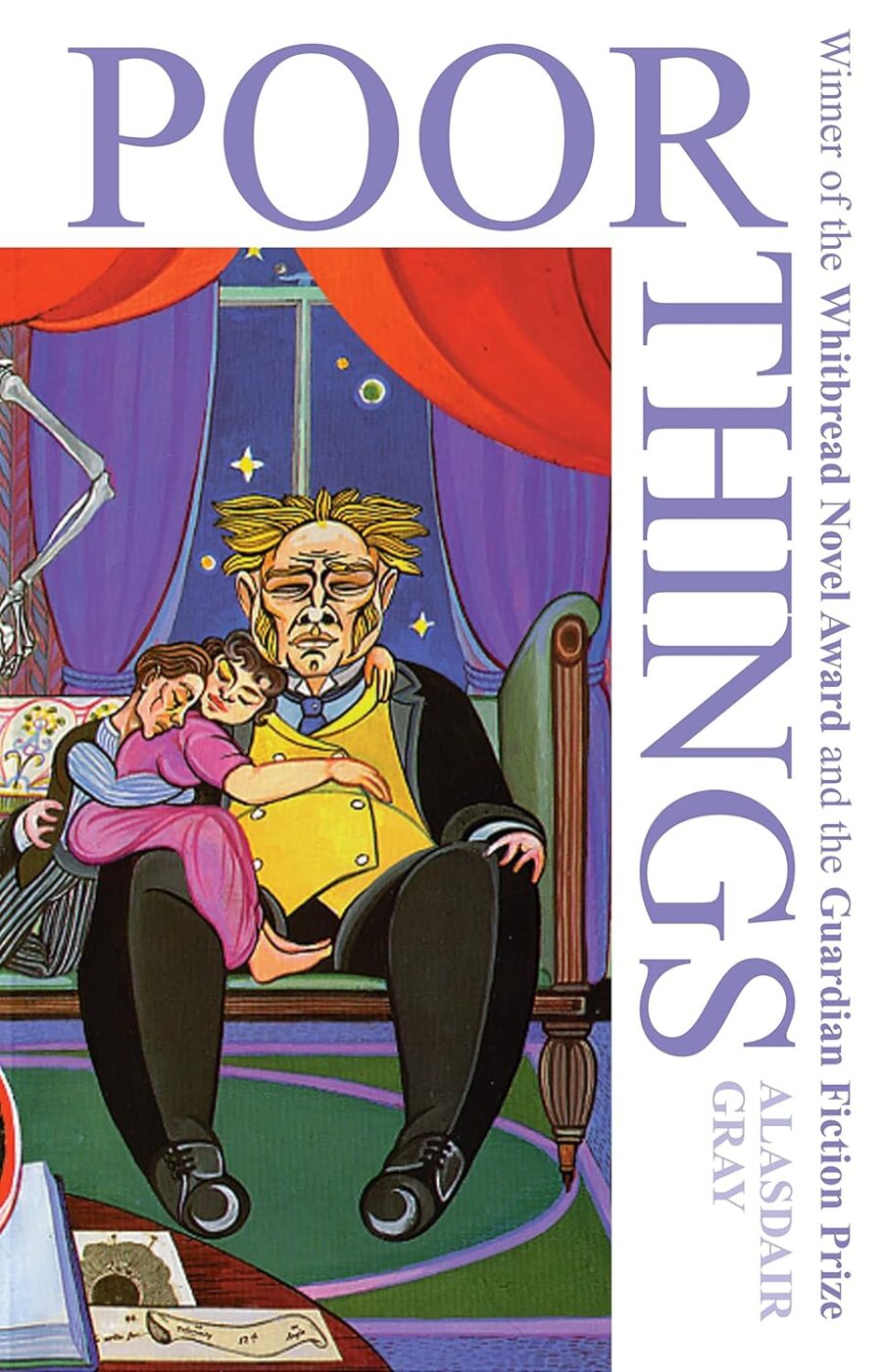BOOKS
Curator Reviews
Poor Things
Since Lanark in 1981, the idiosyncratic novels about Scottish life by the artist Alasdair Gray have come decorated with his own illustrations, and hopping with formal experiment. So does his latest, "Poor Things." The book was also a winner of the 1992 Whitbread Prize for fiction, one of Britain's most important literary awards, and as such is a landmark in the author's career. "Poor Things" is sleeker and shorter than some of Mr. Gray's previous works, and if anything more determined to have fun. The jacket comes equipped with a painting by Mr. Gray of the principal characters in a proper Victorian living room; they advertise an up-to-date 19th-century novel, a comment on the return in Britain to Victorian values. It is also a booby-trapped version of "Frankenstein." A character called Alasdair Gray has come into possession of an old, privately printed book, purporting to be the memoir of a 19th-century public health officer in Glasgow. Its provenance is doubtful; a historian dismisses it as fiction, and the author's widow denounces it as a tissue of lies. Gray champions it as truth, but he admits he has edited it, and then lost the only surviving copy.... It is also witty and delightfully written, if at times two-dimensional. Attention to Victorian Glasgow with its civic fountains, domestic interiors and medical schools gives the book texture. It is the characters, and strangely enough its phantasmagoria, that give it life. (From The New York Times review of Poor Things, 1993)



